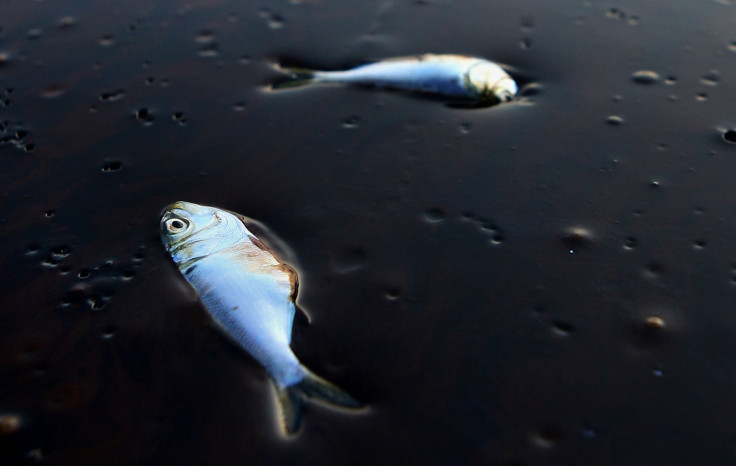BP Clean-Up Made Oil Spill 52 Times Worse

When oil began gushing into the Gulf of Mexico, it was universally seen as an environmental disaster. Oil company British Petroleum, or BP, has been asked to pay a record $4.5 billion fine for their role in the three-month long spill, which some sources say may still be leaking. However, it seems that was just the tip of the iceberg. A study conducted by researchers at Georgia Institute of Technology in the United States and the Universidad Autonoma de Aguascalientes (UAA) in Mexico has found that the clean-up mission appears to have made the disaster even worse - 52 times worse, to be exact.
Over the course of the three months that oil was leaking into the Gulf of Mexico, 4.9 billion gallons of oil spilled into the gulf. In order to clean it up, two million gallons of oil dispersant were used. According to the study, the mixture of oil and dispersant made the spill 52 times more toxic.
The study, published in the journal Environmental Pollution, came to this conclusion by looking at rotifers, microscopic organisms at the bottom of the Gulf's food chain. The five types of rotifers were used for this experiment because rotifers are very sensitive to toxicity and react quickly to changes in environment.
Researchers found that when rotifers were exposed to oil-dispersant mixtures, they died extremely quickly. They also found that as little as 2.6 percent of the oil-dispersant mixture prevented rotifer eggs from hatching by 50 percent. The finding about rotifer eggs was particularly distressing for researchers because rotifer eggs hatch each spring into rotifers, providing food for baby fish, shrimp, and crabs.
"Dispersants are preapproved to help clean up oil spills and are widely used during disasters," study leader, Robert Martinez, from UAA said in a statement. "But we have a poor understanding of their toxicity. Our study indicates the increase in toxicity may have been greatly underestimated following the Macondo well explosion."
"What remains to be determined is whether the benefits of dispersing the oil by using Corexit are outweighed by the substantial increase in toxicity of the mixture. Perhaps we should allow the oil to naturally disperse. It might take longer, but it would have less toxic impact on marine ecosystems," added Terry Snell, a study author and the chair of Biology at the Georgia Institute of Technology.



























